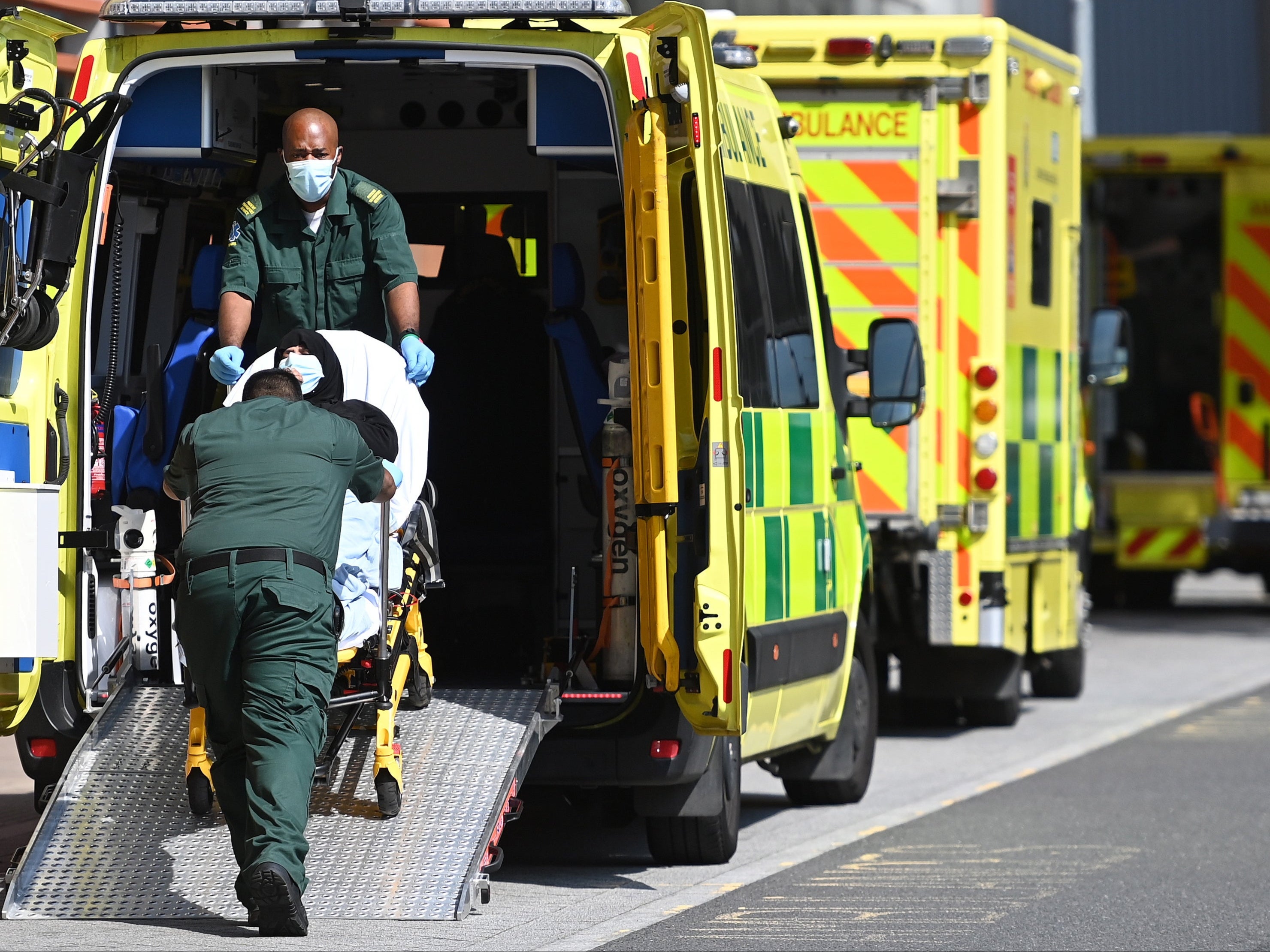Coronavirus: Delta variant doubles risk of hospital admission, new study finds
It is ‘vital’ that people receive two doses of a vaccination, researchers say

People who contract the Delta variant of coronavirus are more than twice as likely to require hospital treatment than those infected with the previously dominant Alpha variant, a new study has suggested.
The analysis, carried out by Public Health England (PHE) and Cambridge University, looked at more than 43,000 cases confirmed by whole-genome sequencing in England between 29 March and 23 May. It is the largest study yet comparing hospitalisation rates of the two variants, its authors said.
Based on their findings, the researchers warned that outbreaks of the Delta variant in unvaccinated populations might lead to a greater burden on healthcare services than the Alpha variant.
Nearly three-quarters of the infections occurred in people who were unvaccinated, with just 1.8 per cent of those infected having received two doses of a vaccine, according to the study, published in The Lancet Infectious Diseases journal.
Close to one in 50 patients were admitted to hospital within two weeks of their first positive test – or 2.3 per cent of Delta cases and 2.2 per cent of those with the Alpha variant.
Researchers then adjusted these figures to take into account other factors – including age, ethnicity and vaccination status – and determined that the risk of being admitted to hospital more than doubled with the Delta variant.
“This study confirms previous findings that people infected with Delta are significantly more likely to require hospitalisation than those with Alpha, although most cases included in the analysis were unvaccinated,” said Dr Gavin Dabrera, one of the study’s lead authors and a consultant epidemiologist at PHE’s National Infection Service.
“We already know that vaccination offers excellent protection against Delta, and as this variant accounts for over 98 per cent of Covid-19 cases in the UK, it is vital that those who have not received two doses of vaccine do so as soon as possible.
“It is still important that if you have Covid-19 symptoms, stay home and get a PCR test as soon as possible.”
Previous studies have shown the Delta variant, first discovered in India, to be far more infectious than the Alpha variant, which emerged in Kent and was responsible for the UK’s devastating winter wave of infections.
But vaccines have been found to be highly effective in protecting people against both variants – with the Pfizer jab thought to reduce the risk of hospitalisation with the Delta variant by 96 per cent.
In the new study, the lower number of cases among vaccinated people meant it was not possible to conclude whether the risk of hospitalisation was higher or similar between those who went on to contract either the Alpha and Delta variants.
But the findings were consistent with previous reports suggesting that vaccination leads to a similar relative reduction in the risk of hospitalisation for patients with both variants, the authors said.
“Our analysis highlights that in the absence of vaccination, any Delta outbreaks will impose a greater burden on healthcare than an Alpha epidemic,” said Dr Anne Presanis, one of the study’s lead authors and a senior statistician at the University of Cambridge’s MRC Biostatistics Unit.
“Getting fully vaccinated is crucial for reducing an individual's risk of symptomatic infection with Delta in the first place, and, importantly, of reducing a Delta patient's risk of severe illness and hospital admission.”
More than 88 per cent of people aged 16 and over have had at least one dose of a vaccine, according to the latest government figures – with 90.2 million doses administered so far.
Additional reporting by PA
Join our commenting forum
Join thought-provoking conversations, follow other Independent readers and see their replies
Comments